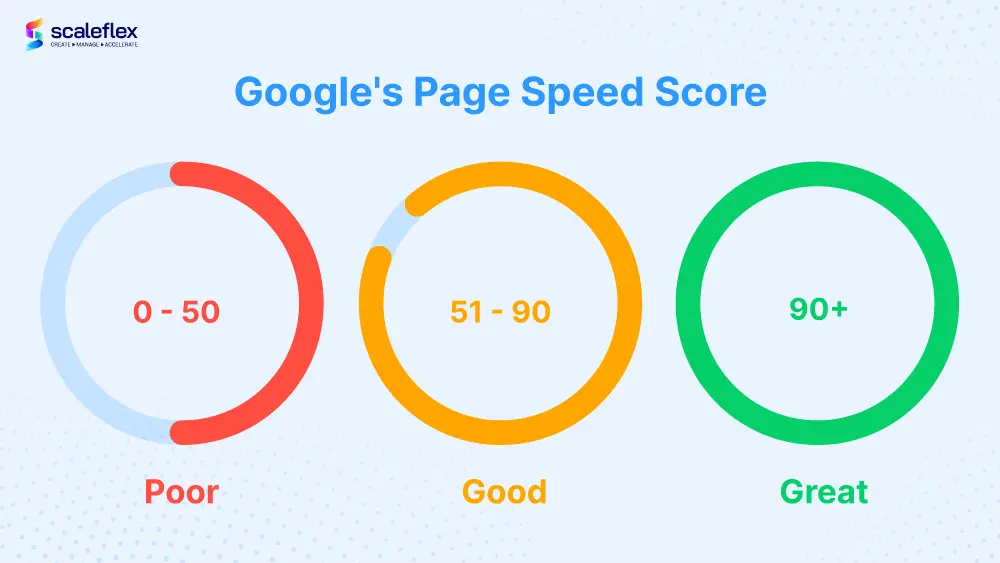In today’s digital world, where instant gratification is a growing demand, page load speed has become one of the most critical factors in SEO. When we talk about improving the visibility of a website in search engines, many often focus on keywords, backlinks, and content quality. While these factors are important, the role of page load speed has taken on an increasingly significant role in how search engines rank websites. Let’s explore why this is happening and how it impacts SEO today.

1. User Experience (UX) and Engagement
Why it matters:
Page load speed directly influences the user experience (UX). In a fast-paced online environment, visitors expect web pages to load quickly. Studies have shown that even a delay of one second can reduce page views by 11%, decrease customer satisfaction by 16%, and cause a 7% drop in conversions.
The SEO connection:
Search engines like Google prioritize user experience in their ranking algorithms. A slow website leads to higher bounce rates, lower engagement, and fewer conversions—all of which send negative signals to Google. As a result, slow-loading pages often rank lower in search results compared to their faster counterparts.
2. Mobile-First Indexing and Speed
Why it matters:
With the increasing number of mobile users, Google has shifted to a mobile-first indexing approach, meaning it primarily uses the mobile version of a site for indexing and ranking. Mobile users tend to have less patience, and poor page load speed can lead to frustration, especially when browsing on mobile devices.
The SEO connection:
Google’s “Core Web Vitals,” part of its ranking criteria, place special emphasis on mobile performance, including page load speed. Websites optimized for mobile that load quickly on smartphones are more likely to rank higher, improving visibility in search engine results.

3. Core Web Vitals and Their Impact on Rankings
Why it matters:
In 2021, Google introduced Core Web Vitals, a set of metrics designed to measure user experience. These metrics focus on three areas: loading performance (Largest Contentful Paint), interactivity (First Input Delay), and visual stability (Cumulative Layout Shift). All three factors are heavily influenced by how fast a page loads.
The SEO connection:
Google has made it clear that these Core Web Vitals are key to ranking well in search results. A slow-loading website may fail to meet Google’s benchmark standards for these metrics, resulting in lower rankings, no matter how great the content might be.
4. Impact on Crawling and Indexing
Why it matters:
Search engines, especially Google, use “crawlers” to scan and index websites. If a website loads slowly, crawlers may not be able to fully index all the pages, meaning important content may not appear in search results.
The SEO connection:
If search engines cannot crawl and index a website efficiently due to slow load times, it negatively affects a site’s visibility in search rankings. Google’s “crawl budget” is also a factor here; slow-loading pages waste this budget, which limits how often and how thoroughly your site gets indexed.

5. Conversion Rates and SEO Synergy
Why it matters:
Visitors are far more likely to abandon a site if it takes longer than three seconds to load. Slow load times not only hurt the user experience but also impact the overall conversion rates, especially in e-commerce. The longer a page takes to load, the lower the chances of a user completing a desired action like making a purchase, signing up, or engaging with content.
The SEO connection:
Although conversion rates themselves aren’t a direct ranking factor, they influence metrics like dwell time and bounce rate, which are considered by Google. A higher bounce rate, caused by slow page speed, signals to search engines that users do not find the site helpful, leading to lower rankings.
6. Competitor Advantage
Why it matters:
In competitive markets, every millisecond counts. If your website loads faster than your competitors, users are more likely to stay on your page, engage with your content, and convert into customers.
The SEO connection:
Since search engines reward faster websites with better rankings, having a fast website gives you a significant competitive edge. You may outperform even larger or more established competitors if your site delivers a faster, smoother experience to users.
How to Improve Page Load Speed for SEO
If you’re convinced that page load speed is crucial for SEO, here are some actionable tips to help optimize your website:
- Optimize Images: Large image files are a common cause of slow load times. Compress and resize images without sacrificing quality.
- Leverage Browser Caching: Use caching to store some website elements in a user’s browser, so they don’t need to be loaded again on repeat visits.
- Minimize HTTP Requests: Reduce the number of files that need to load by combining CSS, JavaScript, and HTML files.
- Use a Content Delivery Network (CDN): CDNs distribute your site’s content across multiple servers, reducing the load time by serving content from the server nearest to the user.
- Optimize Web Hosting: Ensure your web hosting plan meets the demand for your site’s traffic. Consider upgrading to faster, more reliable hosting if necessary.

Conclusion
Page load speed is no longer just a “nice to have” feature; it’s a core factor in SEO success today. With Google’s increasing emphasis on user experience, slow websites are at risk of facing penalties in search rankings. By optimizing your page load speed, you not only improve user satisfaction and reduce bounce rates, but also boost your site’s visibility in search engines.
Fast-loading websites create a positive feedback loop: satisfied users, better engagement, and higher rankings. In a highly competitive digital landscape, speed is one of the most effective ways to stay ahead.
At Keev Studio, we specialize in making your website faster and improving your SEO performance. Our team can help you optimize speed, enhance user experience, and drive better rankings. Check out our SEO page to learn how we can give your website the speed advantage it needs!
Make speed your advantage!
